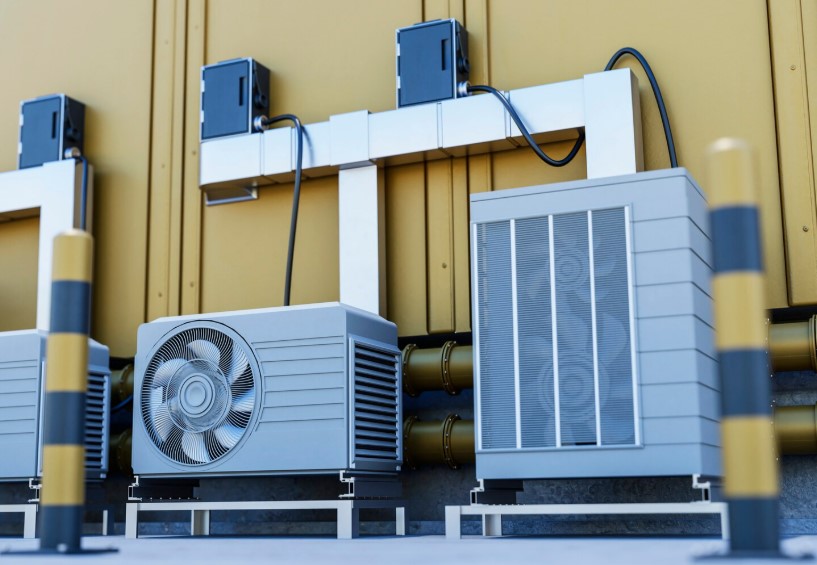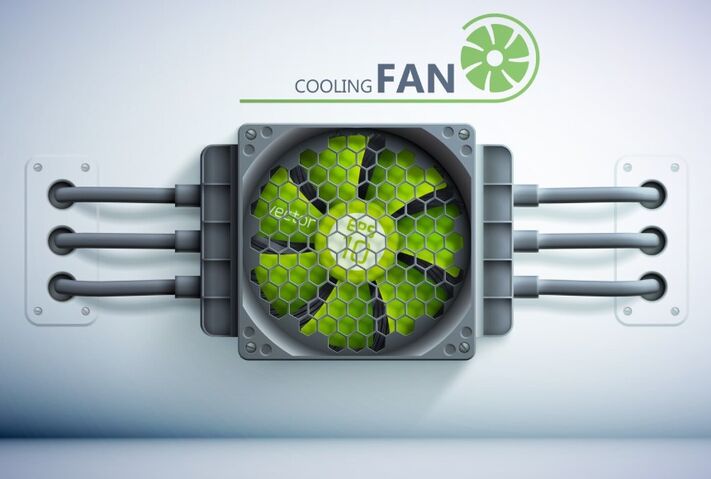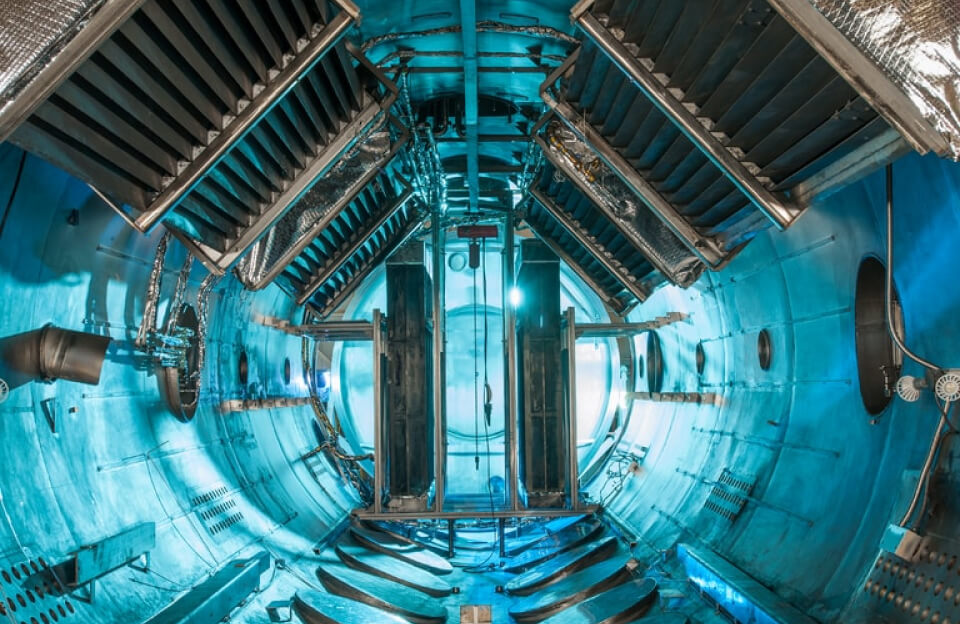The demand for advanced cooling systems has been very high thanks to the high-tech era that we live in. Right from gaming PCs in Silicon Valley to industrial servers in New York and data centers in various regions of the United States, you have to efficiently handle heat if you want the equipment to perform optimally, withstand high working distances, and long service life. Whether your company seeks to protect hypercritical equipment or you are just a techno-freak who dreams about performance in its finest sense. Understanding advanced cooling systems is essential among all other matters.
In this blog, we will explore what advanced cooling systems are, why they matter in the United States, the types available, and how they enhance performance across various sectors.
What do we mean by Advanced Cooling Systems?
Advanced Cooling Systems are specialized technologies designed to manage heat from electronic devices, industrial machines, and high-performance units. Unlike traditional fans, they offer innovative solutions such as liquid cooling, heat pipes, or hybrid air-liquid systems.
Engineers design them for high efficiency, reliability, and minimal noise—features that are crucial, especially in applications requiring precision and top performance.
Reasons why Advanced Cooling Systems are crucial to the U. S. market
In the U. S., numerous technological giant infrastructures like mega data centers or manufacturing benches used massively for industrial work, some of the largest computing complexes, and more advanced space equipment are in existence.
- The Shield of High-Cost Equipment
Furthermore, the vast array of heated servers, GPUs, CPUs, and industrial machinery is prone to overheating, which can consequently lead to hardware malfunctions, incur huge repair costs, or result in significant downtime.
- Maximizes Performance
Thermal management, in a direct manner, affects the performance of on-the-edge technologies like gaming, AI research, and data sciences. Higher-end CPUs and GPUs particularly thrive optimally and last longer at higher velocities within preferred temperature ranges.
- Energy Efficiency
One major concern for U.S. businesses is power usage. Hybrid and liquid cooling technologies offer more efficient cooling while reducing energy consumption compared to traditional methods.
- Complies with Industrial Standards
Over various industry sectors in the U. S., temperature control standards are important- aerospace, semiconductor manufacturing, medical technology, to name but a few. Conversely, advanced cooling solutions work to ensure that these sectors find what works in revising compliance issues.

Types of Advanced Cooling Systems
Currently, many advanced cooling solutions have found their way into the US market. Let us discuss some of these at length:
Liquid Cooling Systems:
Liquid cooling systems pass coolant around to absorb heat from operating high-performance components and dissipate it. In addition, the cooling systems are quieter and more efficient than traditional fans, so they are superbly kept in standby, either for gaming PCs, AI servers, or industrial machines.
Sub-categories encompass:
- Enclosed (AIO) liquid coolers
- Custom-plumbing liquid cooling solutions
- Immersion cooling solutions for data centers
Phase-Change Cooling:
Phase-change cooling makes use of the concept of heat transfer through the evaporation-condensation process; hence, this cooling concept is actually best suited for ultra-high-performance systems, such as extreme overclocking setups or, better still, the heavy-duty industrial processors.
Hybrid Air-Liquid Cooling:
Hybrid systems are of air and liquid cooling to provide a combination of higher heat transfer and to cool quietly. As a result, they are becoming widely popular with U.S.-based data centers and gaming setups as an exquisite fusion of high-tech performance and efficiency.
Thermal Interface Materials (TIMs) and Heat Pipes
Heat pipes and TIMs are complementary materials to advanced cooling methods, which ultimately promote heat transfer and maintain an even distribution of heat throughout the system to stabilize high-performance devices under heavy load conditions.
Applications of Advanced Cooling Systems in the U.S.
Advanced cooling systems are versatile and work in various industries.
- Data Centers
Commercial data centers in major cities like Dallas, Chicago, and San Francisco rely on advanced cooling. Consequently, many have adopted liquid cooling and immersion solutions to reduce energy costs while maintaining system performance.
- Gaming and Custom Built Consumer PCs
The U.S.-based gaming sector is ardently dependent on high-end GPUs and CPUs that bring heavy heat generation with them. It would not be incorrect to say that liquid cooling methods and semi-hybrid systems sum up the gaming world for hardware configuration, up to throttling or overheating.
- For Industrial and Manufacturing Machines
Factories in Michigan and Ohio have big machines producing a lot of heat. This is why modern cooling systems keep the working conditions safe, maintain the condition of the machines, and enable these systems to have a long life.
- Aerospace and Defense
Intensive thermal management is vital for highly precise defense electronics and aerospace equipment. Consequently, and for this reason, the U.S. defense sector is increasingly investing in phase-change cooling and high-efficiency thermal solutions to meet these rigid requirements.
- Renewable Energy Systems
Wind turbines, solar inverters, and other renewable energy components generate heat during operation. An efficient cooling system ensures optimal performance and averts breakdowns in renewable energy infrastructure.
Benefits of Advanced Cooling Systems
Moreover, the adoption of advanced cooling systems offers a range of significant benefits to U.S. businesses and tech users:
- Ageing of Machines – Provides relief for the essential equipment components against wear and tear.
- Increase in Performance – Sustains the synoptic functioning of the developing high thermal capabilities.
- Optimal Consumption of Electricity – Drastically reduces energy consumption as to traditional systems.
- Precautions against Noise Pollution – Minimizes the level of noise to a great extent, very important for office and home facilities.
- Reliability under heavy loads – As a result, it ensures the stability of servers, industrial machines, and high-performance computers.
Moreover, businesses would succeed in gaining a competitive advantage and successfully cut downtime and maintenance costs by adopting advanced cooling solutions.
Choosing the Most Appropriate Advanced Cooling System
Selecting an advanced cooling solution is a process determined by factors such as:
- Purpose – an assessment has to be made as to whether the system is to be used for playing games, supporting servers, for industrial machines, or for other aerospace applications.
- Environment – Consider temperature levels of the subject, airflow, and physical space available.
- Efficiency in power consumption – Check the balance between how well it cools and how much power it guzzles.
- Maintenance- Some require tons of maintenance, and others just work indefinitely with very little servicing. Custom liquid loops are one of the former, while closed-loop versions are among the latter.
- The more expensive cooling option may require huge initial outlays, but it eventually ends up saving you money with a high-energy rating and less downtime.
A thorough evaluation ensures that the chosen system matches operational requirements with the budget constraints.
The Future of Advanced Cooling Systems in the U.S.A.
Increased digitization has yielded an increasing scenario for advanced cooling systems, their key role playing an even more important role as modern technology evolves. Trends include:
- Immersion Cooling for Data Centers – Submerging servers underwater with a non-conductive liquid and extremely effective cooling.
- AI-Powered Thermal Management – Machine learning is employed to keep cooling systems adaptive to workloads based on information learned dynamically.
- Eco-Friendly Cooling Solutions – Furthermore, reducing environmental impact is achieved through designs that are energy-efficient and, in addition, make use of sustainable materials.
- Edge Use Cases – Advanced cooling systems meant for edge servers to be in operation and deployed throughout cities in the U.S.
Thus, all U.S. partnership operations, gamers, and industrial bases must actively keep up with the newest cooling technologies.
In summary
Advanced Cooling Systems are a must rather than an option for performance, reliability, and efficiency across industries in the United States. Be it the high-speed gaming PC, large-scale data centers, or complex industrial machinery, these systems are capable of keeping the operations in the best conditions and reducing energy costs and downtimes.
Therefore, within the U. S.’s competitive market scene, a notable competitive advantage may be gained from advanced approaches: investing in creative cooling technologies would ensure the safeguarding of equipment, enhanced performances, and future-proof operations.



